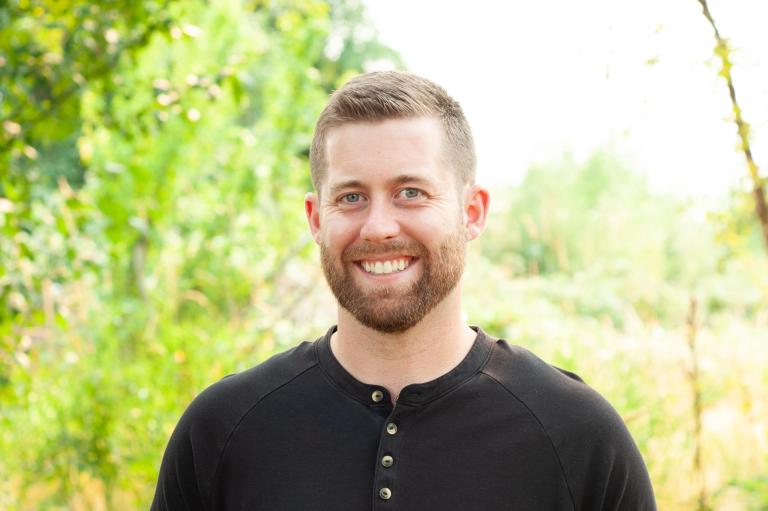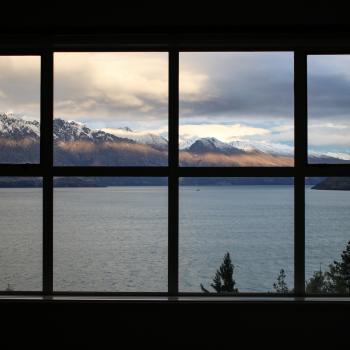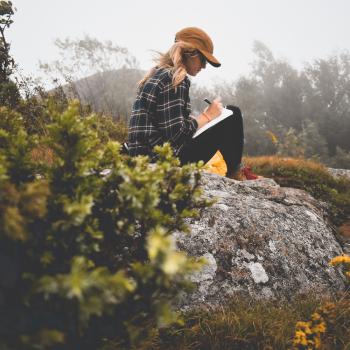
In 2019, following several years of engaging centering prayer and other forms of Christian meditation as my primary spiritual formation practice, I began to feel a call toward a broader understanding of contemplative practice.
Whereas my Centering Prayer teachers, led by Cynthia Bourgeault, made that practice seem like the end-all, be-all, I was becoming more assured by my own experience that there was more to “inner work” than just meditation – and that a contemplative life is about far more than the 20 minute sit. (This inkling was backed up by my work with Richard Rohr and the teachings of angel Kyodo williams.)
And in the process of recognizing this, I found myself viewing inner work within the context of three distinct, yet interconnected, levels.
Personal:
When we experience this imperfect world, no matter our position within it and with all the illusions it foists upon us, none of us come away unscarred.
We respond by creating constricting narratives of our own about who we are, ones that can be confirmed again and again by the world outside us as well as within. Over time, these internal narratives blend together with the constricting narratives of capitalism, meritocracy, white supremacy, heteronormativity, and dualism until we find ourselves wrapped in a personality that doesn’t quite feel like us.
If we don’t engage in embodied, personal inner work, we can numb out to these feelings and live our lives on autopilot, or worse, we can walk down the street as curmudgeons, blowing the under-examined traumas of our lives through the bodies of those around us.
Examples of personal inner work might include practices like therapy, meditation, long walks in nature, journaling, or for me, working with tools like the Enneagram.
Communal:
I really believe inner work is never isolated work.
Our presence and posture is deeply impacted by and interconnected within the webs of our communities. We live and work and play within communities and embodied cultures; we operate within societal systems that incentivize us to think and operate in very specific ways.
Inner work isn’t therefore just about us. It’s an invitation into becoming aware of and understanding what collective stories and behaviors exist around us, how power dynamics work, what goes “unsaid” in different spaces, how decisions get made, and how our bodies are dancing in the midst of all these factors.
It’s an invitation to participate in healing and the forming of communities of solidarity and honesty.
As Rev. angel Kyodo williams says:
“Love and Justice are not two. Without inner change, there can be no outer change. Without collective change, no change matters.”
Some examples of inner work at the communal level: examining the narratives and stories told within our communities, participating relationally in healing and truth telling within organizations, working to form communities of solidarity and honesty.
Societal:
At this level, we work with the ways in which systems deemed “too big to fail” have perpetuated and infused themselves into our political systems, communities, along with our identities, worldviews, and spiritualities.
Just a couple of these systems:
- Heteronormativity
- American prisons
- White supremacy
- Meritocracy
- Patriarchy
- Policing
When we work at the societal level, we sit with the ways we’ve responded and continue to respond to harm. There is a tempering of our body so that we might engage in activist work, not from a position of colonizing, fixing, or saving, but with soft eyes, a vision of wholeness, and a healing posture.
Examples might include practices of solidarity, collective lament, naming the unnamed, and organized activism.
A Deeper Vision for Spiritual Formation
Unfortunately, this kind of inner examination and collective participation is not what many spaces claiming “inner work” and “spiritual formation” have tended to do. Instead, they provide answers, teach certainty, and emphasize self-sustaining solutions.
But inner work is not about fixing, saving, solving, correcting, colonizing, or optimizing anything.
It is a slow, gentle, embodied process of building one’s capacity to carry a healing posture a little bit more today than yesterday. And a little bit more tomorrow than today.
The process of inner work opens us – in our bodies, in our communities, in our worldviews, and in our spiritualities – to an experience of what adrienne maree brown calls “the tingling prickling aliveness of interconnection, of history, of futures becoming possible.”
It brings us into an experience of deep spiritual formation.

















